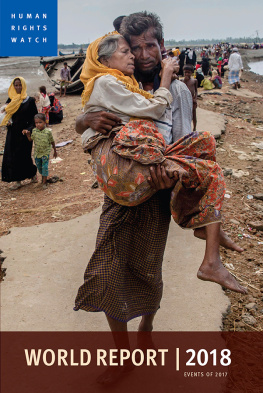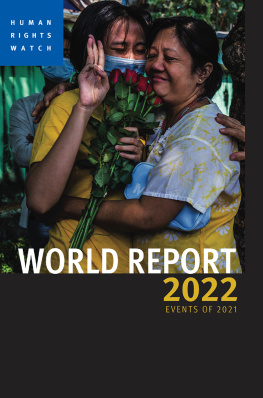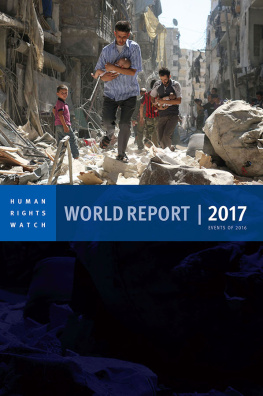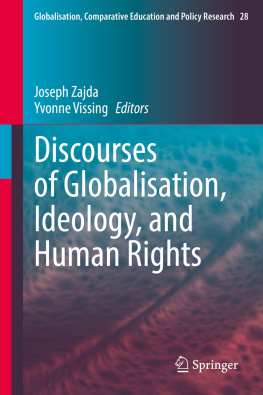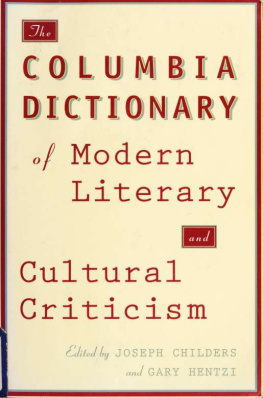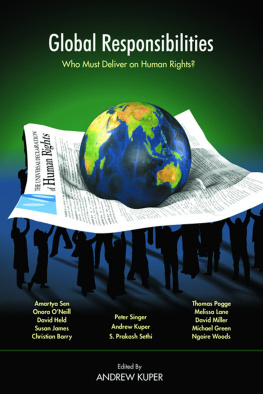HUMAN RIGHTS
and
RESPONSIBILITIES
in the world religions
The Universal Declaration of Human Rights by the Worlds Religions has gone beyond the U.N. Universal Declaration of Human Rights by establishing an unambiguous link between religion and a just society. It has also explored how one balances rights with duties, one of the most complex challenges facing humankind.
Chandra Muzaffar,
President, International Movement for a Just World,
Kuala Lumpur
HUMAN RIGHTS
and
RESPONSIBILITIES
in the world religions
EDITED BY
Joseph Runzo, Nancy M. Martin,
and Arvind Sharma
Volume IV
in
The Library of Global Ethics and Religion
General Editors: Joseph Runzo and Nancy M. Martin
HUMAN RIGHTS AND RESPONSIBILITIES IN THE WORLD RELIGIONS
This ebook edition published by Oneworld Publications, 2014
First published by Oneworld Publicatios, 2003
Oneworld Publications
10 Bloomsbury Street
London WC1B 3SR
England
www.oneworld-publications.com
Joseph Runzo, Nancy M. Martin, and Arvind Sharma 2003
All rights reserved
Copyright under Berne Convention
A CIP record for this title is available
from the British Library
ISBN 978-1-85168-309-3
eISBN 978-1-78074-681-4
Cover design by Design Deluxe
Stay up to date with the latest books, special offers,
and exclusive content from Oneworld with our
monthly newsletter
Sign up on our website
www.oneworld-publications.com
This volume is dedicated to
N INIAN S MART AND V ASUDHA N ARAYANAN
friends who share the vision of interreligious understanding
The path of Truth is as narrow as it is straight. Even so is that of ahimsa. It is like balancing oneself on the edge of a sword. By concentration an acrobat can walk on a rope. But the concentration required to tread the path of Truth and ahimsa is far greater. The slightest inattention brings one tumbling to the ground. One can realize truth and ahimsa only by ceaseless striving
The principle of ahimsa is hurt by every evil thought, by undue haste, by lying, by hatred, by wishing ill of anybody. It is also violated by our holding on to what the world needs.
(Mahatma Gandhi
Excerpt from a Letter to Narandas Gandhi
[July 2831, 1930])
I was hungry and you gave me food, I was thirsty and you gave me drink, I was a stranger and you welcomed me, I was naked and you clothed me, I was sick and you visited me, I was in prison and you came to me. Then the righteous will answer him, Lord, when did we see thee hungry and feed thee, or thirsty and give thee drink? And when did we see thee a stranger and welcome thee, or naked and clothe thee? And when did we see thee sick or in prison and visit thee? And the King will answer them, Truly, I say to you, as you did it to one of the least of these my brethren, you did it to me.
(Matthew 25:3540 RSV)
CONTENTS
ILLUSTRATIONS
Photographs: Nancy M. Martin and Joseph Runzo
CONTRIBUTORS
KHALED ABOU EL FADL is Professor of Law at the University of California, Los Angeles, where he is the Omar and Azmeralda Alfi Distinguished Fellow in Islamic Law. A leading authority in Islamic law in the United States and Europe, he works with various human rights organizations, such as Human Rights Watch and the Lawyers Committee for Human Rights and often serves as an expert witness in international litigation involving Middle Eastern law. His many publications include Rebellion and Violence in Islamic Law; Speaking in Gods Name: Islamic Law, Authority and Women; and And God Knows the Soldiers: The Authoritative and Authoritarian in Islamic Discourse.
ABDULLAHI A. AN-NAIM is Charles Howard Candler Professor of Law and Fellow of the Law and Religion Program of Emory University. An internationally recognized scholar of Islam and human rights and human rights in cross-cultural perspectives, he has held numerous fellowships and visiting professorships and served as the Executive Director of Human Rights/Africa. He is author or editor of nine books, including Universal Rights, Local Remedies; The Cultural Dimensions of Human Rights in the Arab World; Human Rights in Cross-Cultural Perspectives; Human Rights and Religious Values; and The Politics of Memory: Truth, Healing and Social Justice.
JOHN BERTHRONG is Associate Dean for Academic and Administrative Affairs, Assistant Professor of Comparative Religion, and Director of the Institute for Dialogue Among Religious Traditions in the School of Theology at Boston University. As a leading proponent of interreligious dialogue and a renowned scholar of Confucian studies, his most recent books include All Under Heaven: Transforming Paradigms in ConfucianChristian Dialogue; Transformations of the Confucian Way; Confucianism: A Short Introduction; and Confucianism and Ecology: The Interrelation of Heaven, Earth, and Humans, which he edited with Mary Evelyn Tucker.
ARINDAM CHAKRABARTI is Professor of Philosophy at the University of Hawaii. After being trained as an analytic philosopher of language at Oxford, he spent several years receiving traditional training in Indian logic (Navya Nyaya) and metaphysics. In addition to numerous articles and reviews, he has authored or edited four books including Denying Existence: The Logic, Epistemology, and Pragmatics of Negative Existentials and Fictional Discourse, and Knowing from Words: Western and Indian Philosophical Analysis of Understanding and Testimony, and he is currently working on a book on moral psychology.
DAVID CHAPPELL is Professor of Comparative Religion at Soka University of America and Professor Emeritus of the University of Hawaii. He was the founding editor of the journal BuddhistChristian Studies, founding director of the Buddhist Studies Program at the University of Hawaii, and co-founder and former president of the Society of BuddhistChristian Studies. His five books include Buddhist Peacework: Creating Cultures of Peace, and he is currently exploring the changing relationships between religion, business, and government in our global society.
CHRISTOPHER KEY CHAPPLE is Professor of Theological Studies and Director of Asian Pacific Studies at Loyola Marymount University in Los Angeles. He has published ten books, including Karma and Creativity; Ecological Prospects: Scientific, Religious, and Aesthetic Perspectives; and Nonviolence to Animals, Earth, and Self in Asian Traditions. He has just completed editing two volumes for Harvard Universitys Center for the Study of World Religions: Hinduism and Ecology: The Intersection of Earth, Sky, and Water, and Jainism and Ecology: Nonviolence in the Web of Life, and is engaged in a long-term study of Haribhadras Jaina analysis of Yoga.
ELLIOT DORFF is Rector and Professor of Philosophy at the University of Judaism. The leading spokesperson for ethics in Conservative Judaism today, he is the author of over one hundred articles and eight books on Jewish theology, Jewish law, and Jewish ethics. His books include Matters of Life and Death




